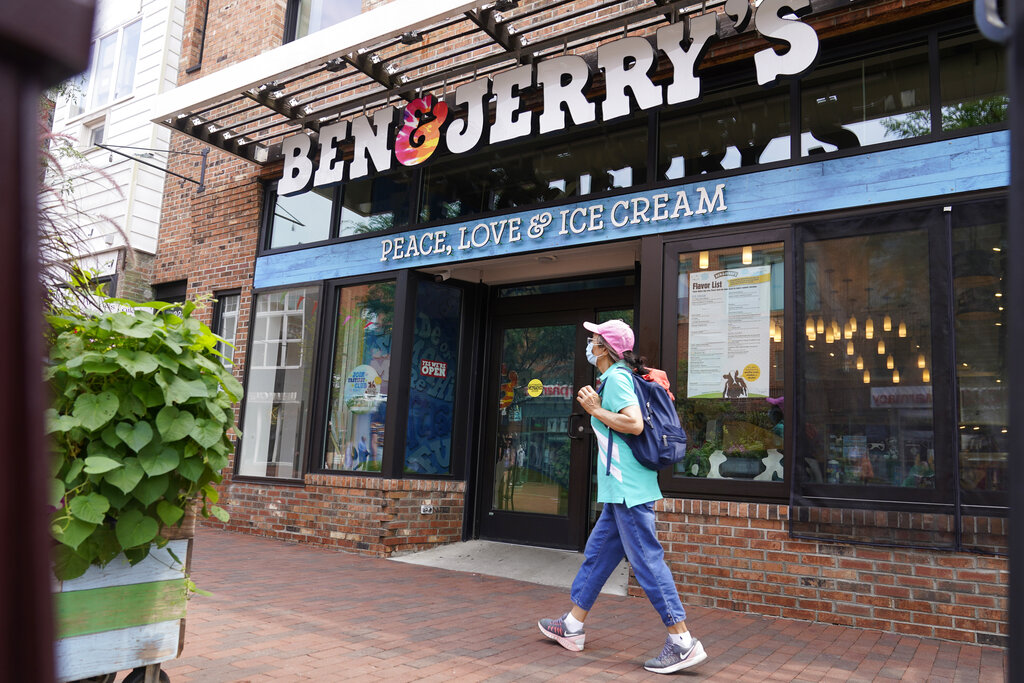
A judge in the United States has ruled against an effort by Ben & Jerry’s to block its parent company Unilever from resuming ice cream sales in the occupied West Bank.
US District Judge Andrew Carter wrote on Monday that Unilever’s decision to licence Ben & Jerry’s products to an Israeli firm did not cause “irreparable harm” to the Vermont-based ice cream company, and therefore it did not merit an injunction by the court.
Ben & Jerry’s had sued Unilever in July, arguing that selling its ice cream in the occupied West Bank undermines its progressive social mission and confuses consumers.
Unilever acquired Ben & Jerry’s in 2000, but the deal allowed the company to maintain control over its brand and social mission. The lawsuit accused Unilever of breaching the merger agreement.
In his decision, Carter said Ben & Jerry’s arguments do not meet the legal requirements for the court to block Unilever from continuing sales in the West Bank. He ruled that the position of Ben & Jerry’s is known to consumers, including through media coverage of the lawsuit against Unilever.
“Further, the products sold in Israel and the West Bank will use no English trademarks, instead displaying new Hebrew and Arabic language Ben & Jerry’s trademarks,” the judge wrote. “Thus, the products sold in Israel and the West Bank will be dissimilar from other Ben & Jerry’s products, mitigating, if not eliminating, the possibility of reputational harm.”
Last year, Ben & Jerry’s – which backs a host of social justice causes – ended sales in the occupied Palestinian territories, including the West Bank and East Jerusalem, saying that doing business in illegal Israeli settlements is inconsistent with its values.
The move set off a firestorm of criticism from Israel’s advocates, many of whom accused the company – founded by two Jewish-American men – of anti-Semitism.
Several US states also moved to penalise Ben & Jerry’s and Unilever over the decision in what many Palestinian rights supporters say was a familiar crackdown on free speech critical of Israel.
After nearly a year of sustained pressure, including from the Anti-Defamation League (ADL), a staunchly pro-Israel, Jewish-American advocacy group, Unilever decided to circumvent Ben & Jerry’s decision by licensing the ice cream sales to a third party in Israel.
The decision was met with cheers from Israel’s supporters, who said it was a victory against the Boycott, Divestment and Sanctions (BDS) movement, which aims to pressure Israel through non-violent means to end abuses against Palestinians.
Ben & Jerry’s has said that ending sales in the West Bank is not part of BDS.
The US has seen a slew of laws prohibiting boycotts of Israel in recent years, drawing criticism from free speech advocates who argue that such measures threaten Americans’ constitutional right to free expression and seek to stifle criticism of Israeli policies.
Several rights groups, including Human Rights Watch and Amnesty International, have accused Israel of imposing apartheid against Palestinians.
Lina Assi, a spokeswoman for Palestine Legal, a US-based group that combats crackdowns on Palestinian rights advocacy, told Al Jazeera in July that anti-BDS laws are part of “broader attempts to malign and silence meaningful solidarity with Palestinians”.







